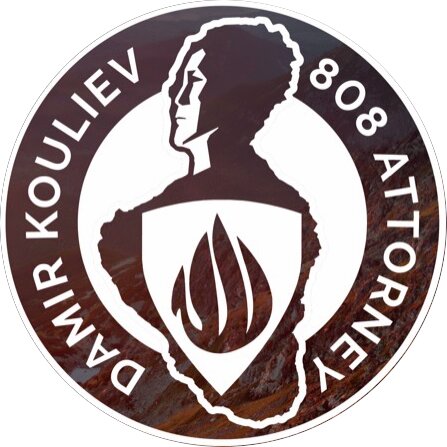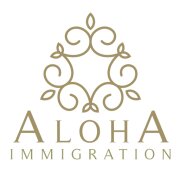Best Child Abuse Lawyers in Hawaii
Share your needs with us, get contacted by law firms.
Free. Takes 2 min.
Free Guide to Hiring a Family Lawyer
Or refine your search by selecting a city:
List of the best lawyers in Hawaii, United States
About Child Abuse Law in Hawaii, United States
Child abuse is a serious legal and social issue in Hawaii, involving the mistreatment or neglect of individuals under the age of 18 by parents, guardians, or caregivers. Hawaii law seeks to protect children from various forms of abuse, including physical harm, emotional distress, sexual exploitation, and neglectful care. Government agencies, such as Child Welfare Services, are tasked with investigating reports of child abuse and ensuring the safety and welfare of children. Both civil and criminal laws apply, with possible legal consequences for abusers and protective measures for victims.
Why You May Need a Lawyer
Legal situations involving child abuse can be complex and emotionally charged. Here are some common scenarios where someone may require legal assistance:
- Being falsely accused of child abuse or neglect
- Needing to report suspected child abuse and seeking guidance
- Facing a Child Welfare Services investigation or court proceedings
- Fighting for custody or visitation rights in the context of abuse allegations
- Seeking protection orders for a child experiencing abuse
- Pursuing compensation or justice in cases of abuse by an institution or caregiver
- Needing legal advice on mandatory reporting obligations
A lawyer with experience in Hawaii child abuse laws can help you understand your rights, navigate court processes, and advocate for the child's safety and well-being.
Local Laws Overview
Hawaii has specific laws designed to protect children and penalize acts of abuse or neglect. Important aspects include:
- Definition of Child Abuse and Neglect: Hawaii law defines abuse broadly to include physical injury, emotional harm, sexual abuse, and failure to provide necessities like food, shelter, and medical care.
- Mandatory Reporting: Certain professionals, such as teachers and healthcare workers, must report suspected child abuse or face criminal penalties.
- Reporting Procedures: Reports can be made anonymously to Child Welfare Services or law enforcement. Immediate action is taken in emergencies.
- Investigation and Intervention: Child Welfare Services (CWS) investigates reports. If abuse is substantiated, the court can remove the child from the home or order services to the family.
- Criminal Penalties: Offenders may face misdemeanor or felony charges, depending on the severity. Sentencing can include imprisonment, fines, and limitations on contact with children.
- Civil Remedies: Victims and families may pursue lawsuits for damages against perpetrators or institutions that failed to prevent abuse.
- Parental Rights: Courts can limit or terminate parental rights in cases of severe or repeated abuse to protect the best interests of the child.
Local statutes and case law in Hawaii ensure child safety is prioritized, but the legal process involves strict timelines and requirements that are best handled with legal guidance.
Frequently Asked Questions
What is considered child abuse in Hawaii?
Child abuse in Hawaii includes physical injury, emotional damage, sexual abuse, exploitation, and failure to provide basic necessities such as food, shelter, and proper supervision.
Who is required to report suspected child abuse?
Mandatory reporters in Hawaii include teachers, doctors, nurses, social workers, and law enforcement officers. Anyone can report, but certain professionals are legally obligated to do so.
How can I report suspected child abuse?
You can report by contacting Child Welfare Services or local law enforcement. Reports can be made anonymously, and immediate action will be taken if there is a risk of imminent harm.
What happens after a report is made?
Child Welfare Services will assess the situation, conduct an investigation, and determine if the child’s safety is at risk. Protective actions, such as removal from the home or providing family services, may be taken.
Can someone be prosecuted for child abuse in Hawaii?
Yes. Criminal prosecution is possible for perpetrators of child abuse, with penalties ranging from misdemeanors to felonies depending on the severity and circumstances.
What rights do accused parents or guardians have?
Accused individuals have the right to legal representation, to challenge evidence, and to a fair hearing or trial. They must also receive proper notice of any proceedings.
How does child abuse affect child custody cases?
Allegations or findings of child abuse can result in loss of custody, supervised visitation, or termination of parental rights to prioritize the safety and well-being of the child.
Is counseling or other support available for affected children?
Yes. Hawaii offers counseling, advocacy, and support services for abused children and affected families through various state and non-profit agencies.
Can family members seek protective orders for children?
Yes. Family members may seek restraining orders or protective orders from the court if they believe a child is at risk of abuse or harm.
How can a lawyer help in a child abuse case?
A lawyer can provide critical advice, represent your interests in court, help collect evidence, guide you through the investigation or defense process, and advocate for the best interests of the child.
Additional Resources
If you or someone you know needs help with child abuse concerns in Hawaii, the following resources can be helpful:
- Hawaii Department of Human Services - Child Welfare Services (CWS)
- Hawaii State Judiciary - Family Court
- Child & Family Service Hawaii
- Hawaii State Coalition Against Domestic Violence
- Legal Aid Society of Hawaii
- Local law enforcement agencies
- School counseling and social work services
- Hawaii Children's Trust Fund
Next Steps
If you suspect child abuse, are facing allegations, or need legal advice or representation, consider the following steps:
- Contact Child Welfare Services or law enforcement immediately if a child is in immediate danger
- Keep thorough documentation of any incidents, communications, and evidence related to the situation
- Consult with a lawyer experienced in Hawaii child abuse and family law to understand your rights and legal options
- Follow all legal requirements for mandatory reporting if you are a designated reporter
- Seek support or counseling services for both the child and affected family members
Taking prompt action and securing professional legal advice can help safeguard a child's welfare and ensure the best possible outcome under Hawaii law.
Lawzana helps you find the best lawyers and law firms in Hawaii through a curated and pre-screened list of qualified legal professionals. Our platform offers rankings and detailed profiles of attorneys and law firms, allowing you to compare based on practice areas, including Child Abuse, experience, and client feedback.
Each profile includes a description of the firm's areas of practice, client reviews, team members and partners, year of establishment, spoken languages, office locations, contact information, social media presence, and any published articles or resources. Most firms on our platform speak English and are experienced in both local and international legal matters.
Get a quote from top-rated law firms in Hawaii, United States — quickly, securely, and without unnecessary hassle.
Disclaimer:
The information provided on this page is for general informational purposes only and does not constitute legal advice. While we strive to ensure the accuracy and relevance of the content, legal information may change over time, and interpretations of the law can vary. You should always consult with a qualified legal professional for advice specific to your situation.
We disclaim all liability for actions taken or not taken based on the content of this page. If you believe any information is incorrect or outdated, please contact us, and we will review and update it where appropriate.
Browse child abuse law firms by city in Hawaii
Refine your search by selecting a city.










